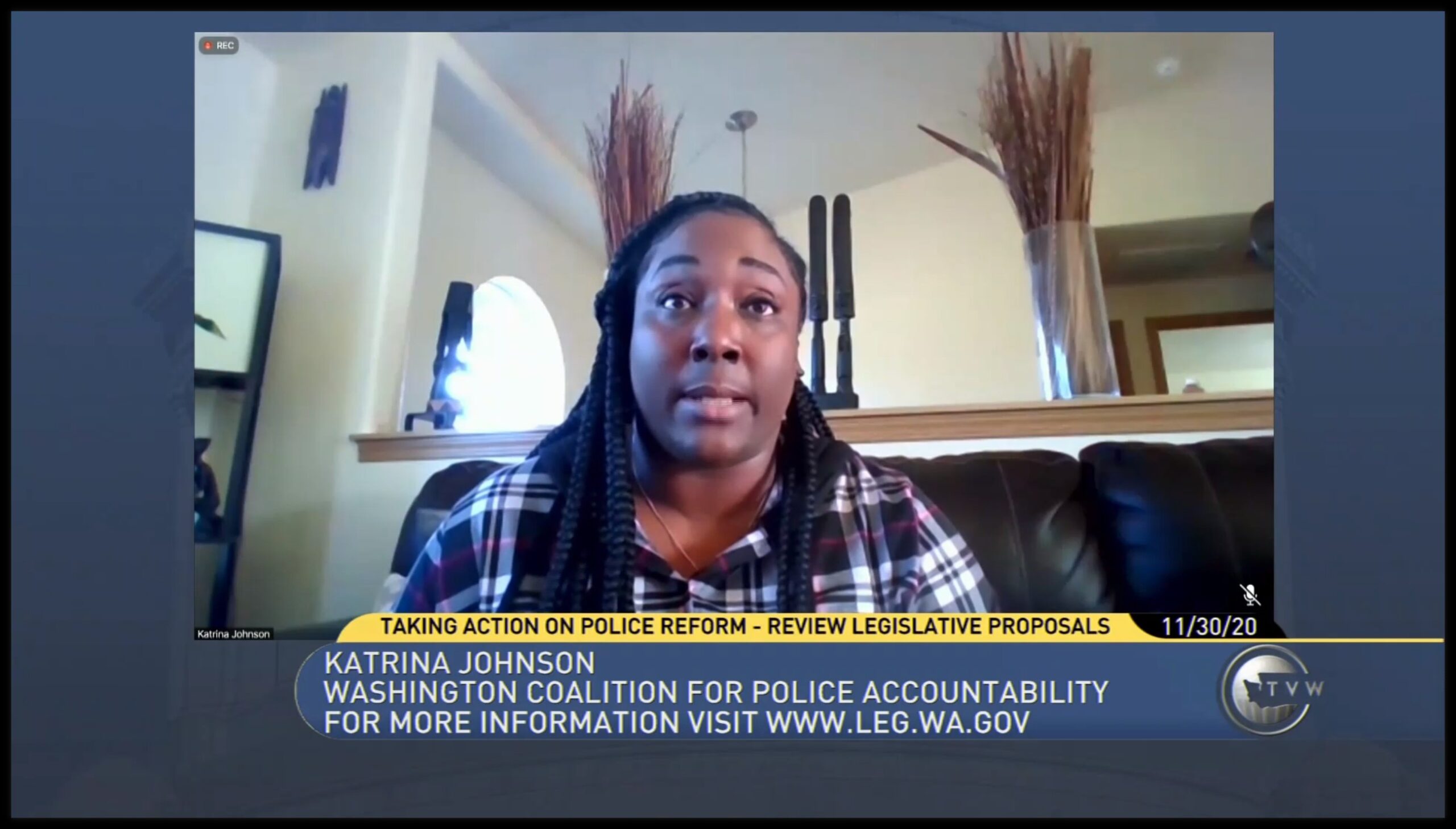This afternoon, the House Public Safety Committee, along with speakers from a multitude of organizations and backgrounds, convened virtually to discuss possible police reform measures and legislative proposals for the State of Washington.
Representative Roger Goodman (D‑45th District: Redmond, Kirkland, Woodinville, Sammamish) chaired the meeting, which heard presentations from invited guests.
Members of the Washington Coalition for Police Accountability (WCPA) voiced their grave concerns about ongoing police brutality and violence, particularly against BIPOC individuals. WCPA members showed great unity in demanding increased accountability and transparency from law enforcement agencies.
The WCPA emphasized the need for deescalation tactics prior to any use of lethal force. Republican Representative Brad Klippert argued that deescalation is not always possible, especially in situations where the officer must act in self-defense.
Following this exchange, there was a brief discussion about the use of chokeholds; with many speakers asserting that constriction techniques are inhumane and often result in people dying at the hands of police officers. (NPI supports outlawing the use of chokeholds by law enforcement.)
Pastor Walter Kendricks, speaking on behalf of Washington for Black Lives, delivered a short speech citing both the Bible and the Declaration of Independence to drive home the importance of equality before the law.
Both Anne Levinson, a former judge, and Tim Burgess, a former Seattle city council president and interim mayor, outlined frameworks for reform legislation. Some of the measures contemplated include:
- mandatory baseline training
- giving a verbal warning before using force
- requiring all officers to report misconduct they see
- increasing community oversight
Former King County Sheriff Sue Rahr argued that punishment alone will not spur meaningful change in law enforcement. Rahr says that a deep examination of history is necessary to break down the deeply biased belief systems of individuals.
Speaking for people working in law enforcement, members from the Washington Association of Sheriffs and Police Chiefs (WASPC), the Washington Council of Police and Sheriffs (WACOPS), Washington Fraternal Order of Police, and Washington State Patrol Troopers Association outlined ways in which they planned to assist and abide by current and proposed legislation.
James McMahan from WASPC told lawmakers it is vitally important that we adopt a statewide standardized training program concerning use of force, which he said should include education on implicit bias and history of race and law enforcement, tying into earlier points made by former Sheriff Sue Rahr.
Reform advocates are particularly keen to abolish private arbitration in trials of officers who have been suspended or fired for misconduct. In 52% of cases, private arbitrators have reduced or overturned officer discipline, while in 42% of cases arbitrators have ordered law enforcement leaders to rehire officers.
All the speakers agreed that appeals should be open to public scrutiny and be guided by policing standards, which has not been the case in the past.
Requiring greater transparency could help rebuild shattered public confidence in law enforcement agencies and allow systemic racism to be more effectively confronted. House Public Safety Chair Roger Goodman promised as he ended the meeting to continue reviewing the ideas presented so that the Legislature can be ready to move meaningful legislation in the 2021 legislative session.

